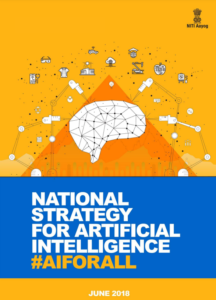Responsible AI is becoming a critical topic in today’s rapidly advancing technological world. As artificial intelligence continues to evolve and integrate into various aspects of our daily lives, ensuring that AI systems are developed and used responsibly is paramount. Responsible AI focuses on creating and deploying AI technologies that are ethical, transparent, and aligned with societal values. This post explores the importance of responsible AI, its ethical considerations, and how it can be effectively implemented.
What is Responsible AI?
Responsible AI refers to the practice of designing, developing, and deploying artificial intelligence systems in a way that is ethical, fair, and beneficial to all stakeholders. It involves ensuring that AI technologies respect human rights, avoid biases, and operate transparently. The goal of responsible AI is to create systems that enhance human capabilities while minimizing risks and unintended consequences.
Ethical Considerations in Responsible AI
One of the core aspects of responsible AI is addressing the ethical implications of AI technologies. Here are some key ethical considerations:
1. Fairness and Bias
AI systems must be designed to be fair and unbiased. This means actively identifying and mitigating any biases that may be present in the data or algorithms. Responsible AI ensures that decisions made by AI systems do not unfairly disadvantage any individual or group.
2. Transparency
Transparency is crucial in building trust in AI systems. Responsible AI requires that the operations of AI systems are understandable and interpretable by humans. This involves making the decision-making processes of AI models transparent and providing clear explanations for their outcomes.
3. Accountability
Responsible AI demands accountability from those who design, develop, and deploy AI systems. This includes establishing clear guidelines and responsibilities to ensure that AI systems operate within ethical boundaries and that there are mechanisms in place to address any issues that arise.
4. Privacy
Protecting user privacy is a fundamental aspect of responsible AI. AI systems must be designed to safeguard personal data and comply with privacy regulations. This includes implementing robust data security measures and ensuring that users have control over their own data.
Implementing Responsible AI
To implement responsible AI, organizations need to adopt a comprehensive approach that encompasses various strategies and practices:
1. Ethical AI Frameworks
Developing and adhering to ethical AI frameworks is essential. These frameworks provide guidelines and principles for designing and deploying AI systems responsibly. Organizations should establish ethical review boards and conduct regular audits to ensure compliance with these frameworks.
2. Diverse and Inclusive Teams
Creating diverse and inclusive teams is crucial for developing responsible AI. Diverse teams bring different perspectives and experiences, which can help identify and mitigate biases in AI systems. Inclusion ensures that the AI technologies developed are beneficial to a broad spectrum of society.
3. Continuous Monitoring and Evaluation
AI systems should be continuously monitored and evaluated to ensure they operate as intended. This involves regular testing, auditing, and updating of AI models to address any emerging issues. Responsible AI requires a proactive approach to identifying and resolving potential risks.
4. Public Engagement and Education
Engaging with the public and educating stakeholders about AI technologies is vital for responsible AI. This includes fostering open dialogues about the benefits and risks of AI, as well as providing educational resources to help people understand how AI impacts their lives.
The Future of Responsible AI
As AI technologies continue to advance, the importance of responsible AI will only grow. Ensuring that AI systems are developed and used ethically and transparently is crucial for building trust and maximizing the benefits of AI for society. By prioritizing responsible AI, we can create a future where AI technologies enhance human capabilities, promote fairness, and contribute to the well-being of all.
Conclusion
Responsible AI is not just a concept but a necessity in today’s technological landscape. By focusing on ethical considerations, transparency, accountability, and privacy, we can ensure that AI technologies are developed and used in ways that benefit society. Implementing responsible AI requires a comprehensive approach, including ethical frameworks, diverse teams, continuous monitoring, and public engagement. As we move forward, the commitment to responsible AI will be key to harnessing the full potential of artificial intelligence for the greater good.
4o
Summary of National Strategy for Artificial Intelligence| NITI Aayog India
Summary of National Strategy for Artificial Intelligence | NITI Aayog...
Read MoreDemystifying AI Literacy: Empowering Everyone for the Future
Demystifying AI Literacy: Empowering Everyone for the Future In a...
Read MoreThe Transformative Impact of AI in Healthcare
Artificial intelligence (AI) is revolutionizing industries worldwide, and its impact...
Read MoreResponsible AI | Importance & Implementation | 2024
Responsible AI is becoming a critical topic in today’s rapidly...
Read MoreThe Transformative Power of Artificial Intelligence in Finance
Artificial Intelligence in finance is not just a trend but...
Read MoreA Comprehensive History of Artificial Intelligence
As we embark on a journey through time, exploring the...
Read More
